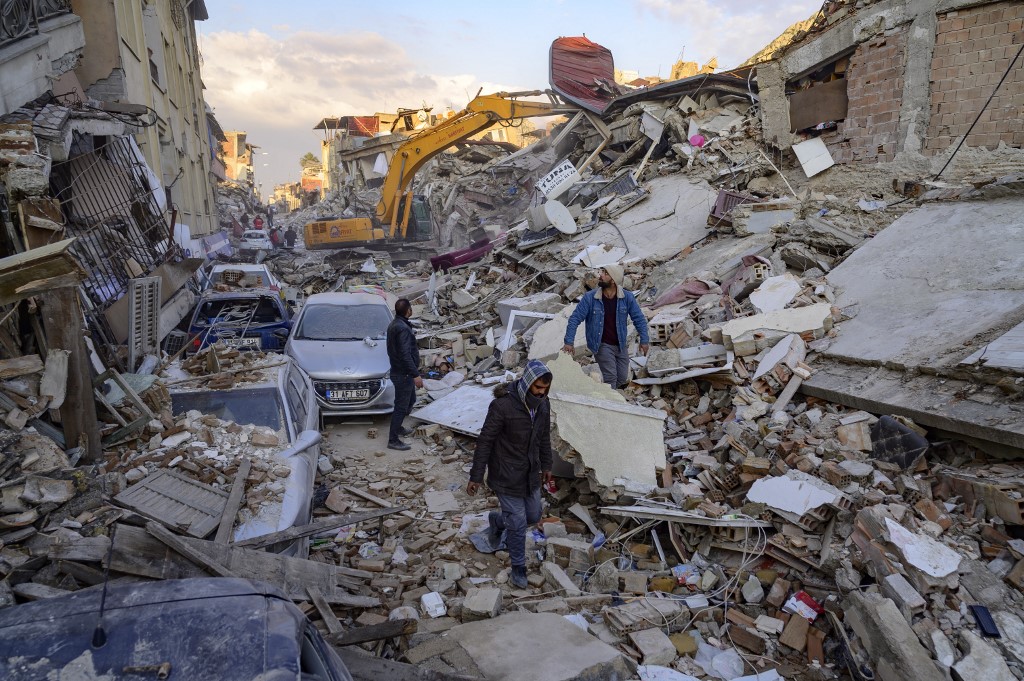A Turkish court has handed down an 18-year sentence to a building contractor due to his role in the death of 34 people when the building collapsed in powerful earthquakes that hit Turkey last year, the first-ever decision by a court in post-earthquake trials in the country, the state-run Anadolu news agency reported.
On February 6, devastating 7.8 and 7.5-magnitude earthquakes struck Turkey, claiming over 53,000 lives and leaving millions homeless in 11 provinces in the country’s south and southeast.
The Şanlıurfa 9th High Criminal Court made its landmark ruling during a hearing on Thursday where contractor Müslüm Demirer, who was in pretrial detention, was given a prison sentence of 18 years on charges of “causing the death and injury of more than one person through conscious negligence.”
When the building constructed by Demirer collapsed in Şanlıurfa, 10 residents were injured in addition to the 34 killed. One of the victims was Demirer’s son.
Reports drafted by experts following examination of the debris showing defects in the building’s construction were read out during the hearing, at which the lawyers for the victims demanded the maximum sentence for the defendant.
The prosecutor said the defendant failed to comply with building safety guidelines when constructing the building, which had significant structural defects.
The panel of judges initially ordered a prison sentence of almost 21 years to the contractor but later reduced it because he was personally affected by the tragedy with the loss of his son.
Three other contractors working with Demirer on the building all passed away in the years before the earthquakes, the court said.
At the time, Turkish President Recep Tayyip Erdoğan said shoddy construction had contributed to the high death toll; however, his government faced widespread criticism for encouraging a construction boom during its more than two-decade rule while failing to enforce building regulations.
Search for justice looks gloomy
Turkey, which is located on major fault lines and frequently hit by powerful earthquakes, has a poor record in the delivery of justice for those who are responsible for the deaths of thousands in earthquakes due to shoddy construction.
When more than 17,000 people were killed in a 7.4 magnitude temblor that struck the western city of İzmit in 1999, prosecutors drafted 2,100 indictments against contractors and other related parties due to their role in the death of people in collapsed buildings, according to a report on the Bianet news website.
Among them, 1,800 trials could not proceed due to loopholes in the law, while defendants were convicted in 110 of the remaining 300 trials. They were released from prison after serving short sentences.
Some trials were dropped due to the expiration of the statute of limitations in February 2007, seven-and-a-half years after the earthquake.
It is not yet known whether Turkey’s justice system will this time give a fair trial to those responsible for the collapsed buildings and satisfy the victims’ families quest for justice.
There are ongoing trials against hundreds of suspects in the earthquake-hit provinces. Yet, no public official is being tried due to their role in the death toll in the earthquakes although many hold them responsible for issuing building permits for projects that ignored safe building standards and for failing to take the necessary measure for earthquake-preparedness.
Human Rights Watch, which released a report before the first anniversary of the February 6 earthquakes earlier this month, said the Turkish government has an obligation to ensure that public officials responsible for thousands of defective buildings that collapsed in the February 6 earthquakes are held accountable.
HRW said trials of real estate developers, building controllers and technical personnel have started in recent months but that not a single public official, elected mayor or city council member has yet faced trial for their role in approving numerous construction projects that fell far short of safe building standards or for failing to take measures to protect people living in buildings known to have structural problems in a region with a high risk of seismic activity.


